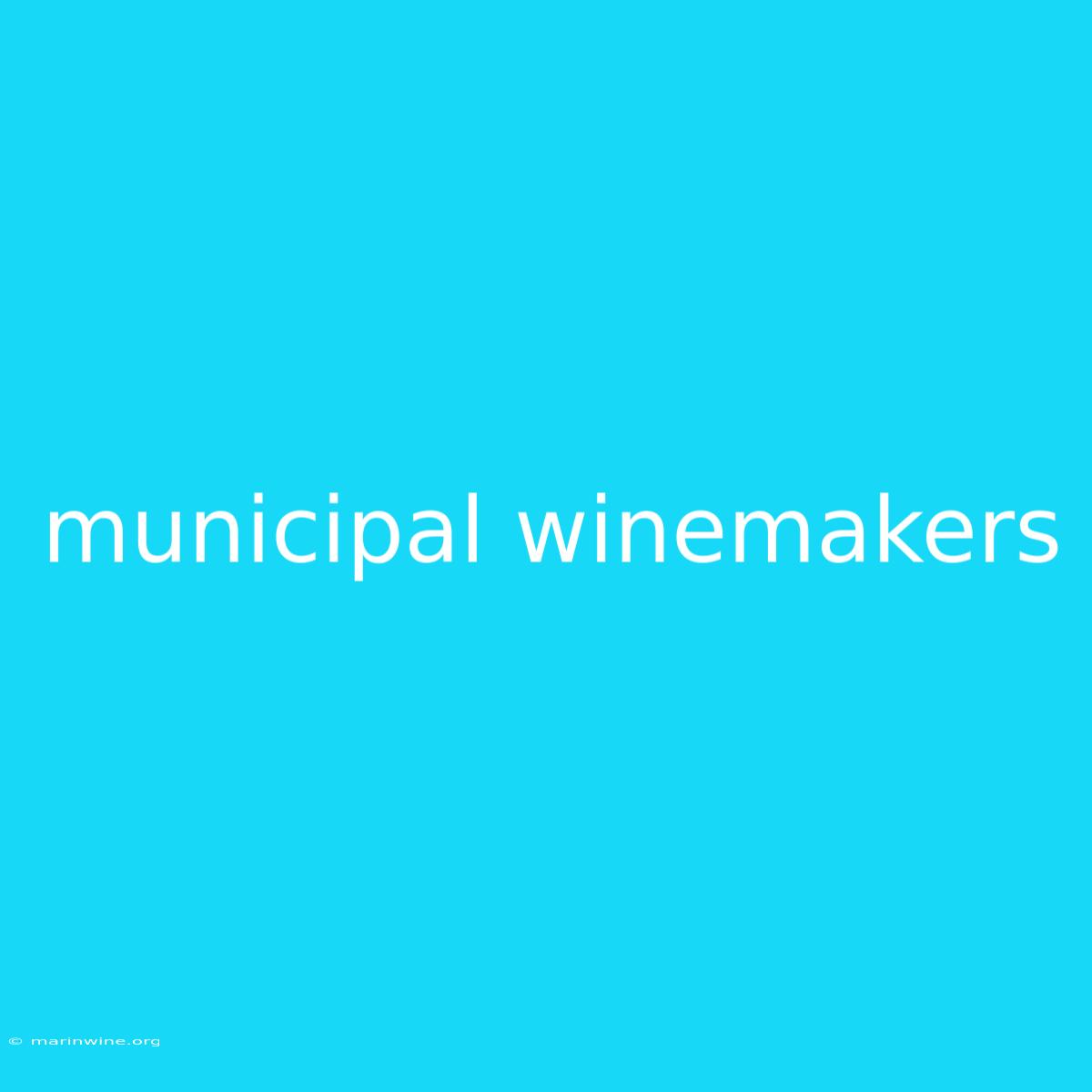The Rise of the Municipal Winemaker: When Cities Become Vintners
For centuries, winemaking has been associated with rolling hills, sun-drenched vineyards, and picturesque countryside landscapes. But in recent years, a fascinating trend has emerged: urban winemaking. This movement, driven by a desire to connect with local communities, experiment with unique terroirs, and breathe life into underutilized urban spaces, is transforming the wine industry.
At the forefront of this evolution are municipal winemakers, who utilize city-owned land or public resources to produce wine. This unexpected collaboration between local governments and the world of winemaking is paving the way for a new era of urban viticulture.
Why are municipalities embracing winemaking?
- Revitalization and Community Engagement: Urban vineyards can breathe life into neglected urban areas, creating vibrant public spaces and fostering a sense of community.
- Economic Growth and Tourism: Wine production can attract tourism and generate revenue, supporting local businesses and creating job opportunities.
- Sustainability and Urban Farming: Utilizing urban spaces for sustainable agriculture promotes environmental awareness and reduces reliance on conventional farming practices.
- Local Identity and Innovation: Urban winemaking allows cities to create a unique identity and showcase their specific terroir, fostering a sense of place and supporting local producers.
From Brooklyn to Beijing: A Global Movement
The trend of municipal winemaking is gaining momentum around the globe. From the Brooklyn Winery in New York City to the Urban Winery in Beijing, municipalities are embracing the opportunity to bring the art of winemaking to the heart of their cities.
- Brooklyn Winery: This New York City landmark produces wine from grapes sourced from the Hudson Valley region, offering urbanites a taste of local terroir and a unique city experience.
- The Urban Winery (Beijing): This innovative winery utilizes reclaimed water and solar energy to create wines, showcasing a commitment to sustainability and innovation.
- City Winery (Chicago, Nashville, New York, etc.): This popular chain operates multiple urban wineries, offering winemaking classes, live music events, and a vibrant atmosphere.
The Future of Urban Winemaking
As the trend of municipal winemaking gains traction, we can expect to see:
- Greater focus on sustainability and local sourcing: Urban winemakers are embracing organic and biodynamic practices to minimize their environmental impact.
- Innovation and experimentation: The unique microclimates and urban landscapes offer exciting opportunities for winemakers to explore new grape varieties and winemaking techniques.
- Increased community engagement: Urban wineries are becoming cultural hubs, hosting events, educational workshops, and creating opportunities for community interaction.
The rise of the municipal winemaker is a testament to the evolving relationship between cities and the world of wine. By embracing this innovative approach, cities are not only creating a unique and vibrant wine culture, but also fostering sustainable development, community engagement, and a renewed appreciation for the art of winemaking.

